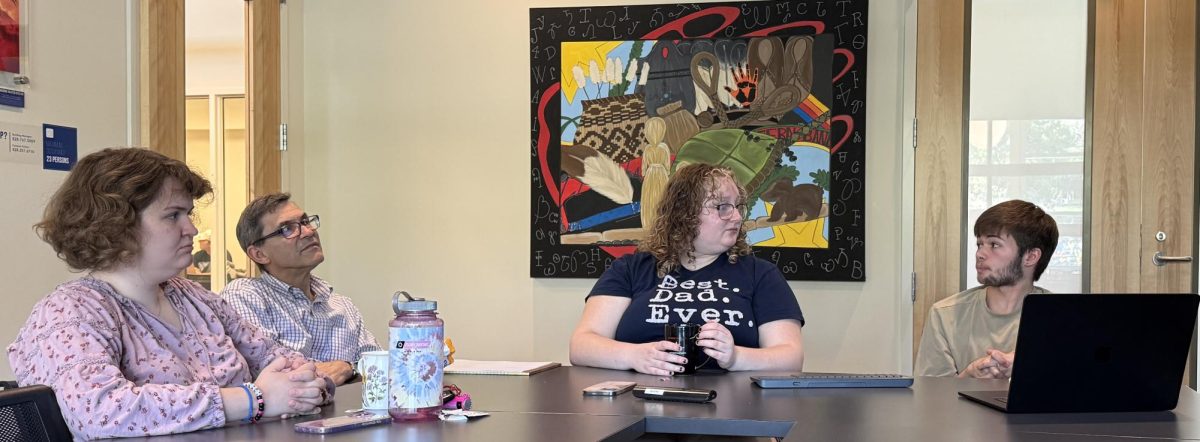Through the use of clever wordplay, Hillel, the Jewish organization at the University of North Carolina at Asheville, hosts meetings for members of the community but also those who are curious about Judaism. The group comes together to discuss the world through the Jewish lens. These meetings, effectively called Tea-kkun Olam, are a way for Hillel to share more about the religious aspects of Judaism and their practice of tikkun olam.
“We hope to foster a space in which people can talk about issues in the world they see around them and offer a new lens to look through,” said Lily Kie, Hillel President for UNCA.
According to North Carolina Hillel Rabbi Larry Ginsburg, tikkun olam is a Hebrew phrase that means “repairing the world.” This is done through acts of kindness and social justice.
“To me, the phrase tikkun olam means to make a difference in the world around you,” Kie said. “Whether that is volunteering, helping friends, helping strangers or simple acts of kindness, it has always been important to me to do my best in repairing the world.”
Kie said they like to support local businesses or volunteer through Nechama, a Jewish group that is dedicated to offering support after natural disasters.
“Many Jewish values surround the ideas of helping your community and social justice,” Kie said. “In today’s world, it has become more and more important to be politically active, especially locally.”
This is what partially inspired the creation of Tea-kkun Olam. They wanted to change their focus from the many cultural aspects of their events to the religious aspects, as the community had really struggled to rebuild after Covid and Hurricane Helene, according to Kie.
According to Jewish Heritage North Carolina, the history of Jews in Asheville goes back to the 1890s, when George W. Vanderbilt was building the Biltmore Estate, where Jews immigrated to the area to open stores and find relief from tuberculosis.
“Asheville supports two synagogues, a JCC, a Chabad House and a Jewish Film Festival,” JHNC said.
For students like Nick Anders, Tea-kkun Olam meetings are an opportunity to learn more about their own religion and culture.
While he had heard the phrase before, Anders’s first experience familiarizing himself with the concept was during the Thursday meeting.
“After sitting and discussing with some fantastic, educated people, I started to develop what tikkun olam means to me,” Anders said. “Being a kind person.”
Anders has Jewish heritage but was brought up with primarily Christian values. It is important to him to study Jewish values despite his upbringing as the values are not just limited to tikkun olam and Judaism.
“While tikkun olam originated in Jewish communities, I think everyone can and should take note and inspiration from these values,” he said.
One of Asheville’s two synagogues, Congregation Beth Israel, has been around since 1899 and has adapted to modern views. Their president, Ed Kramer, stopped by Tea-kkun Olam.
According to Kramer, he read a lot of stuff in newspapers and about the state of Judaism 55 years ago and now at 75, seeing students involved like he was impressed him.
“It gives me a lot of hope,” Kramer said. “Just the fact that Jewish students in 2025 are still getting together, discuss these issues, is encouraging to me.”
To Kramer, tikkun olam means what can he do to make this a better world. Not just what he can think about, but what actions he can take. It’s not just something he has the ability to do; it’s something he believes he has a responsibility to do.
“I think there’s some universal moral judgments of the world,” he said. “It’s not so hard to see good versus evil and bad versus good.”
Kramer believes listening to the different perspectives of the people around him and trying to make any situation better is important.
Tikkun olam, if taken seriously, does make a difference. All it takes is one person. Good deeds can make a difference in everyones individual lives, according to Kramer.
“I think there’s a universal message in tikkun olam,” he said. “Everybody can practice it.”




















